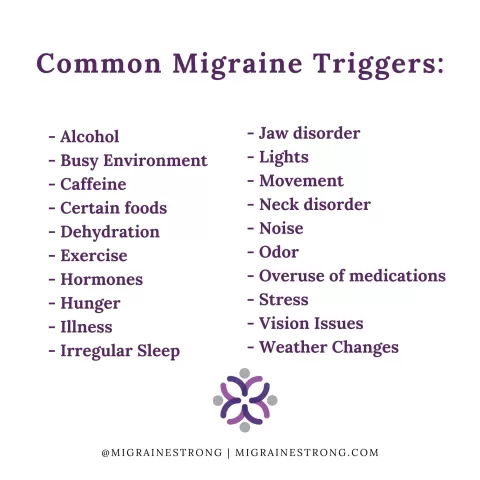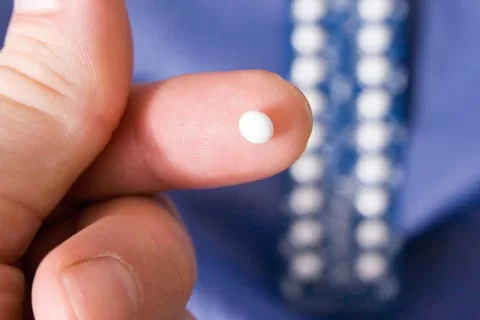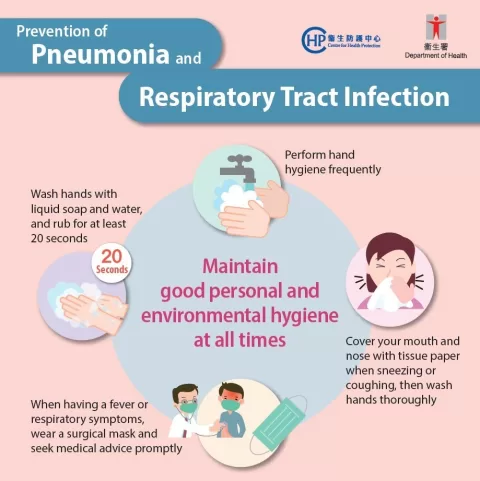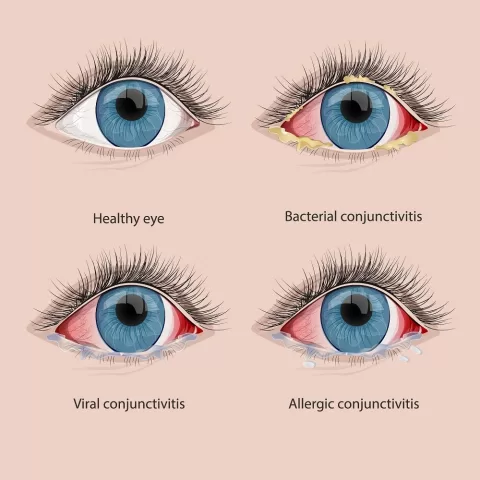Hailey Bieber’s frightening health scare rocked the celebrity world in March 2022 when she suffered a mini-stroke, medically known as a transient ischemic attack (TIA). While enjoying breakfast with her husband, Justin Bieber, Hailey experienced alarming stroke-like symptoms that prompted immediate medical attention. Reflecting on her experience, she revealed the alarming TIA symptoms that left her feeling disoriented and fearful. Thankfully, Hailey’s quick recovery allowed her to share her journey, raising awareness about mini-stroke incidents. Her story has become significant in celebrity health news, encouraging discussions around health vigilance and the importance of recognizing TIA symptoms.
In March 2022, singer and model Hailey Bieber faced a life-altering health event when she experienced a transient ischemic attack, often referred to as a mini-stroke. This condition, characterized by temporary disruptions in blood flow to the brain, sparked widespread conversations about the critical nature of identifying the warning symptoms early on. Hailey’s experience serves as both a personal story of triumph over adversity and a broader call for mini-stroke awareness among the public. Her journey toward recovery, intertwined with elements of anxiety and post-traumatic stress, highlights the often-overlooked emotional impact of such health crises. As discussions evolve around celebrity health news, Hailey’s experience shines a light on the importance of understanding and responding to TIA symptoms.
Understanding Hailey Bieber’s Health Scare: The Mini-Stroke Incident
In March 2022, Hailey Bieber faced a daunting health scare that left not just her, but her fans across the globe in shock. Suffering from a transient ischemic attack, commonly known as a mini-stroke, she experienced alarming symptoms while enjoying breakfast with her husband, Justin Bieber. These symptoms, which resembled those of a more severe stroke, included numbness in her limbs and trouble with speech, prompting an immediate visit to the hospital. This incident not only shone a light on the seriousness of mini-strokes but also on the importance of recognizing TIA symptoms early, as they can be indicative of more significant health challenges in the future.
Hailey’s diagnosis revealed that she had a small blood clot that temporarily disrupted blood flow to her brain, a condition that many may associate with older adults but is increasingly being recognized in younger populations. Her recovery was swift, and she expressed immense gratitude for the medical professionals who assisted her. This incident serves as a critical reminder about the potential dangers of TIA, the urgent need for mini-stroke awareness, and how celebrities like Hailey use their platforms to educate others about health concerns.
Symptoms of TIA: What Hailey Bieber Experienced
Transient ischemic attacks (TIAs) can present a variety of symptoms that may often be overlooked or misinterpreted. In Hailey Bieber’s case, she described experiencing a ‘weird sensation’ that spread across her body, specifically from her shoulder to her fingertips, paralyzing her ability to use her right arm. This is just one example of the disorienting symptoms—others can include sudden numbness, confusion, difficulty speaking, and facial drooping. Recognizing these symptoms early can be lifesaving and highlights the importance of raising awareness about TIA and its potential progression to a full-blown stroke.
Additionally, Hailey’s account emphasizes the importance of understanding the factors that contribute to TIA risk. Her experience post-incident underscores how certain medical histories, like previous migraines or recent COVID-19 recovery combined with lifestyle factors (such as long-haul flights), can lead to complications. By sharing her symptoms and recovery journey, she not only provides insight into her personal health challenge but also sparks conversations about these issues in the wider community, helping others to stay vigilant regarding their own health.
Recovery Journey: Hailey Bieber’s Path Following Her Mini-Stroke
Following her mini-stroke, Hailey Bieber faced a multifaceted recovery process that delved deeper than just the physical symptoms. While she quickly regained her health and returned home, the emotional aftermath proved to be challenging. Hailey openly discussed dealing with anxiety and post-traumatic stress disorder after the traumatic episode, a common psychological response to such frightening health scares. Her courage to speak about these challenges helps to destigmatize mental health issues that often accompany significant medical events, reminding fans and followers alike that recovery is not solely about physical healing.
In reflecting on her recovery journey, Hailey highlights the importance of self-care and the gradual understanding that the emotional side of healing is just as critical as the physical aspect. She describes the experience as “terrifying, jarring, and disorienting” but also notes the gradual progress she has made over time. Each step towards managing her anxiety and PTSD shows that healing is personal and can vary greatly from one individual to another, further emphasizing the need for support, understanding, and awareness surrounding the long-term effects of such health crises.
Mini-Stroke Awareness: Hailey’s Advocacy and Impact
Hailey Bieber’s terrifying experience with a mini-stroke has brought an often-overlooked topic into the public spotlight. By sharing her story, she fosters mini-stroke awareness, encouraging discussions about health, wellness, and the importance of seeking medical help at the first sign of troubling symptoms. Celebrity health news often focuses on glamorous choices, yet Hailey’s candid approach connects deeply with her audience by illustrating how serious health issues can affect anyone, regardless of fame or fortune.
Her advocacy extends beyond simply sharing her own experience; it’s a call to action for women, particularly those with underlying health risks or previous conditions, to pay close attention to their bodies and seek medical advice when symptoms arise. As one of the notable figures discussing her health scare publicly, she serves as an educator, using her platform to promote awareness and potentially save lives by urging fans to understand TIA symptoms and acknowledge the seriousness of a transient ischemic attack.
Hailey Bieber’s Struggle with Mental Health Post-Mini-Stroke
The psychological ramifications of Hailey Bieber’s mini-stroke have been profound. Like many who face life-threatening health issues, she confronted feelings of anxiety and PTSD in the aftermath of her health scare. Addressing mental health openly, she explained that confronting the aspects of her health incident remains challenging, reflecting a common narrative for those who undergo sudden medical emergencies. Hailey’s dialogue about her mental health struggles fosters awareness and provides a sense of community for others who face similar challenges after traumatic health experiences.
Moreover, her willingness to share her journey not only helps demystify mental health issues but empowers others to discuss their own struggles and seek help. By highlighting her experiences on forums like podcasts and social media, Hailey encourages open conversations about mental health among her fans, emphasizing that recovery is a holistic process that encompasses both body and mind. This powerful narrative of resilience can inspire others to recognize the importance of mental health resources in their journey to recovery.
The Role of Celebrity Stories in Health Education
Hailey Bieber’s mini-stroke serves as a notable example of how celebrity stories can play a significant role in health education. When well-known figures openly share their health challenges, they enhance public awareness surrounding medical conditions such as TIA. Their high-profile experiences can lead to increased discussions about early signs and symptoms, ultimately leading to better health outcomes for fans who may find themselves in similar situations. This intersection of celebrity and health education becomes a powerful tool in advocating for timely medical attention, particularly for conditions that may otherwise be misunderstood.
The media tends to amplify these incidents, providing a spotlight on issues that could benefit from a larger platform. Hailey’s story, alongside others in the entertainment industry, helps normalize conversations about serious health matters that affect countless individuals. By fostering a culture of openness and education through her experiences, Hailey plays a vital role in encouraging her audience to prioritize their health and be proactive about recognizing potentially dangerous symptoms, contributing positively to the overall landscape of public health discourse.
Recognizing the Signs: How to Help Prevent a Mini-Stroke
Understanding the signs of a mini-stroke, or transient ischemic attack (TIA), is crucial to potentially preventing lasting damage. Hailey Bieber’s experience highlights the importance of knowing and recognizing stroke-like symptoms. Symptoms such as sudden numbness, confusion, trouble speaking, and facial drooping should not be ignored. Individuals who notice these signs in themselves or others need to seek immediate medical attention. Prevention strategies also involve addressing risk factors such as managing chronic conditions, maintaining a healthy diet, and staying active, which can significantly reduce stroke risk.
In addition to personal awareness, encouraging a culture of education about TIA symptoms around friends and family also plays an essential role. Sharing knowledge about health risks can empower others to act quickly if they witness similar conditions in someone else. Hailey’s public discourse on her frightening encounter can inspire individuals to engage in preventative conversations and support one another in leading healthier lives, thus fostering a community-oriented approach to health preservation and awareness.
The Importance of Medical Follow-Up and Lifestyle Changes After a TIA
Post-TIA care is critical in preventing future occurrences and ensuring overall health stability. After her mini-stroke, Hailey Bieber was advised by her doctors to assess her lifestyle habits more extensively, especially regarding her birth control usage and travel plans. This personal experience highlights the importance of regular medical check-ups and follow-ups after experiencing a transient ischemic attack. Maintaining an open line of communication with healthcare providers is essential for managing any underlying conditions and adjusting lifestyle factors that contribute to stroke risk.
Lifestyle changes may involve incorporating healthier dietary choices, increasing physical activity, and reducing stress levels. Hailey’s reflections on the impact of her recent health scare can motivate others to take a proactive stance on their health, emphasizing the need for making informed decisions about their choices. Additionally, regular screenings and maintaining awareness of one’s health can be fundamental in ensuring long-term wellness after a TIA, thus serving as a vital takeaway for the public from Hailey’s story.
Empowering Others: How Hailey Bieber Inspires Health Conversations
Through her candid revelations about her health scare, Hailey Bieber empowers others to have important conversations about health. Her willingness to share details of her mini-stroke experience bridges the gap between celebrity life and the real-world struggles many face regarding health. By using her platform to address such issues, she inspires her audience to speak up about their own experiences and advocate for their health. This empowerment encourages individuals to educate themselves on symptoms and risk factors related to mini-strokes, enhancing community awareness surrounding this critical health topic.
Furthermore, Hailey’s advocacy encourages a collective responsibility towards health education. By sharing her journey with TIA symptoms and subsequent mental health struggles, she fosters a supportive atmosphere where others can find solace in shared experiences. This not only normalizes discussing health issues but also positions her as a role model who prioritizes health awareness, showing that everyone has the potential to make a difference in their own health narratives and in those around them.
Frequently Asked Questions
What happened to Hailey Bieber during her mini-stroke in March 2022?
Hailey Bieber experienced a transient ischemic attack (TIA), or mini-stroke, on March 10, 2022. While having breakfast with her husband, she began to exhibit stroke-like symptoms, which prompted immediate medical attention. Doctors discovered a small blood clot in her brain that caused a temporary reduction in oxygen supply. Thankfully, her body was able to manage the situation, and she fully recovered within a few hours.
What are the symptoms of a mini-stroke like those experienced by Hailey Bieber?
Hailey Bieber shared the symptoms she faced during her mini-stroke, which included a peculiar sensation traveling from her right shoulder to her fingers, numbness, and difficulties with speech. She described struggling to get sentences out and noticed facial drooping. These symptoms are commonly associated with transient ischemic attacks but can vary by individual.
How did Hailey Bieber’s health scare impact her mental health?
After her mini-stroke, Hailey Bieber revealed that she experienced ongoing anxiety and post-traumatic stress disorder (PTSD). She described the traumatic event as terrifying and noted that she struggled with anxiety about the possibility of another mini-stroke occurring. With time, she has worked through her feelings and encourages discussions to help others understand such health challenges.
What health factors contributed to Hailey Bieber’s mini-stroke?
Hailey Bieber’s mini-stroke was attributed to several health factors including her recent use of birth control pills, a history of migraines, recovery from COVID-19, and a long-haul flight she took before the incident. Doctors concluded that a blood clot traveled to her heart and subsequently reached her brain, causing her transient ischemic attack.
What can we learn about mini-stroke awareness from Hailey Bieber’s experience?
Hailey Bieber’s mini-stroke serves as a vital reminder of the importance of mini-stroke awareness. Her openness about her symptoms and recovery emphasizes the need for quick medical attention when experiencing stroke-like signs. It also highlights the significance of understanding individual risk factors and seeking medical advice to prevent similar incidents.
How is Hailey Bieber doing now after her mini-stroke recovery?
Approximately a year after her mini-stroke, Hailey Bieber reported that she is doing well but continues to address her mental health challenges related to anxiety and PTSD. Despite the psychological impact of her health scare, she appreciates the support from medical professionals and is focused on sharing her story to help others who may face similar issues.
| Key Points |
|---|
| Hailey Bieber suffered a mini-stroke (TIA) in March 2022 while having breakfast with her husband, Justin Bieber. |
| She experienced stroke-like symptoms, including speech difficulty and face drooping. |
| Hailey expressed gratitude for the healthcare team that helped her recover quickly. |
| Doctors identified three contributing factors: birth control pills, recent recovery from COVID-19, and a long-haul flight. |
| Nearly a year later, she continues to deal with anxiety and PTSD related to the incident. |
| Hailey is open about her experience and aims to support others through discussions about her health. |
Summary
Hailey Bieber mini-stroke in March 2022 was a significant health scare that led to important revelations about her health. After experiencing a transient ischemic attack, she recovered quickly but continued to face challenges such as anxiety and PTSD. Hailey’s honest sharing of her experience aims to raise awareness and support others who may face similar health issues.
The content provided on this blog (e.g., symptom descriptions, health tips, or general advice) is for informational purposes only and is not a substitute for professional medical advice, diagnosis, or treatment. Always seek the guidance of your physician or other qualified healthcare provider with any questions you may have regarding a medical condition. Never disregard professional medical advice or delay seeking it because of something you have read on this website. If you believe you may have a medical emergency, call your doctor or emergency services immediately. Reliance on any information provided by this blog is solely at your own risk.








